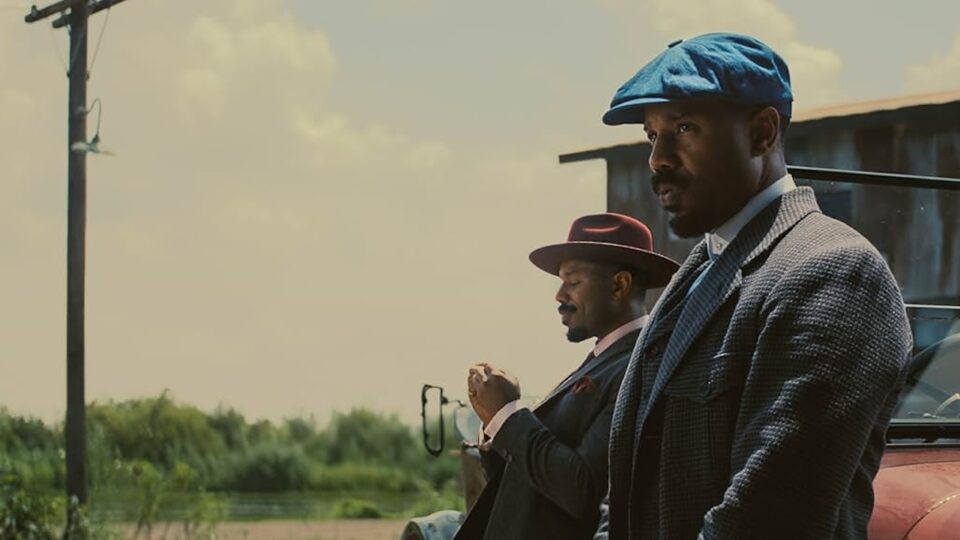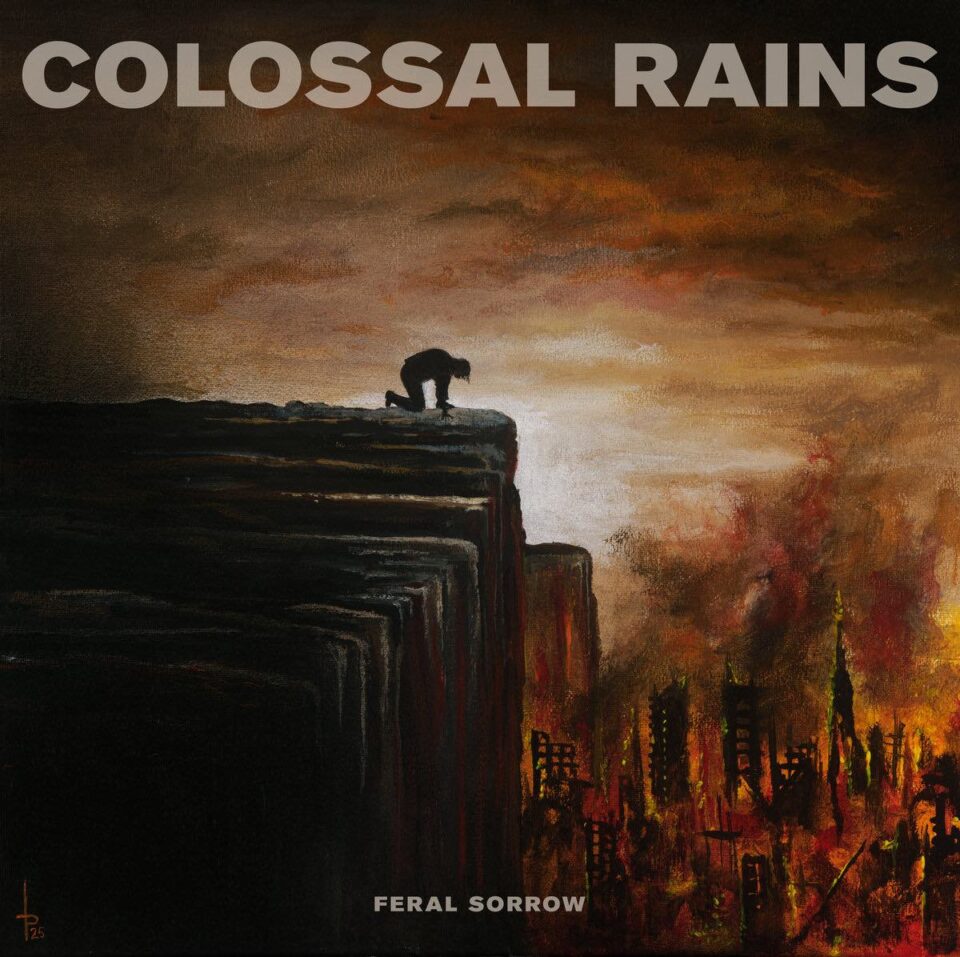When you give yourself over to Ryan Coogler’s Sinners, it’s a holy experience. The film not only moved viewers on an emotional level, but it shifted the earth underneath our feet, culturally speaking. It was almost instantaneous—a feeling that we were experiencing a vital benchmark forming. It’s no surprise that the film vaulted over the $300 million mark in box office receipts globally after just five weekends in theaters. A bonafide blockbuster, turning the classic vampire story into a metaphor for white supremacy, it carries a generational appeal, indicating that moviegoers are hungry for original stories made by Black filmmakers that go much further than skin-deep assessments of history and culture.
“There are legends of people with the gift of making music so true it can conjure spirits from the past and the future,” Wunmi Mosaku’s Annie says, cutting to the heart of one of the film’s central themes: music inhabiting spiritual transcendence. The same can be written about the cinematic experience, particularly in a film set against the Jim Crow Mississippi Delta. It’s a celebration of the art of music, a dissection of religion (filtered through white eyes, as Karen Attiah writes in her incisive, thoughtful essay), and a detailed account of some of the most insidious forms racism can take. In using the common form of vampires—a popular manifestation of greed, lust, and power employed in storytelling for 125 years—Coogler engages with the general public’s hunger for bloodthirsty humanoids.
Sinners emerges from the shadows to become the year’s best horror film thus far, tapping into the unlikely source of decades of “a backbreaking form of apartheid” and the “race records” they inspired—Coogler’s words in an interview with NPR as he distinguished traditional Black folk music from the hillbilly sounds of white America. Of course, Coogler isn’t blind to the public perceptions of his work. “Imagine me, in 2025, saying I’m going to make a genre movie, not even understanding that classification of art and how some art is above other art,” he continued. “I realized my people have been at war with this. From the beginning, this has been a tool kind of lobbied against us. So for me, the vampire was a creature who’s human-adjacent—who was human at some point, [and] became something else. But through their advanced age, they could see society for what it was.”
It’s that willingness to confront and provoke that’s led Sinners to become a turning point for horror movies. In an era where DEI campaigns are being forced back as a blatant form of resegregation, and Black art is undervalued, the film earnestly encourages viewers to absorb the material in a very honest way. Word-of-mouth drove audiences to the theater, and they left with not only damn good entertainment, but a history lesson about music, religion, and racism.
Sinners isn’t the first Black horror movie to shift the conversation, of course. A good reference point is Horror Noire: A History of Black Horror, Xavier Burgin’s 2019 documentary based on Robin R. Means Coleman’s 2011 book Horror Noire: Blacks in American Horror Films from the 1890s to Present. The Shudder-produced doc walks the audience through the depiction and presence of Black filmmakers, writers, and actors in the genre. It’s an essential and enlightening experience that marks many significant moments in Black horror, including 1968’s Night of the Living Dead, in which Black actor Duane Jones plays the hero amid the sociopolitical turmoil of the ’60s. With such genre experts as author and educator Tananarive Due and actor Tony Todd, the film also features conversations around the Blaxploitation subgenre of the ’70s and the films that followed like Sugar Hill, Candyman, Tales From the Hood, Demon Knight, and Eve’s Bayou as essential Black horror pillars.
In a much broader sense, 2015’s Straight Outta Compton marked a significant turn in how Black films across genres were received in Hollywood and beyond. Jordan Peele commented in an interview with The Guardian that “the industry could no longer hide behind the myth that Black films don’t work overseas.” The biographical drama received several nominations, including at the Oscars for Best Original Screenplay, and snagged several industry wins, from Hollywood Film Awards to National Board Review. It was an unstoppable cinematic force that changed the conversation around Black cinema, leading the way for films like Moonlight to win major hardware, including Best Picture and Best Adapted Screenplay at the 2017 Oscars.
Peele’s Get Out hit theaters in 2017, grossing $255.5 million during its global theatrical run. The film busted down every expectation and became a worldwide phenomenon, earning countless awards, including Best Original Screenplay at the 2018 Oscars ceremony. “The reason this movie is working and resonating with the Black audiences is that it gives its audience credit,” the director theorized. “It doesn’t presume that people are going to watch this film and go out and attack people. It presumes that people are going to be engaged intellectually and thematically. I knew it would do more to allow us to face our fears and address our horror than it would be a divisive movie.”

Get Out’s commercial and critical success opened the floodgates. In the next several years, we’ve witnessed numerous Black-made horror films find their audiences, most notably Nia DaCosta’s Candyman reboot, His House, The Blackening, and Bad Hair, in addition to TV series like Lovecraft Country (developed by Misha Green) and Them (executive produced by Lena Waithe). These building blocks may not have been possible without Straight Outta Compton and Get Out, but they pay it forward by feeding into Ryan Coogler’s Sinners, which hopefully leads moviegoers to check out other Black horror movies.
As big of a moment as Get Out was, Sinners feels even more monumental. It’s too early to tell, but the vampiric tale is already drawing Oscar buzz from several industry publications. Variety’s Clayton Davis noted that the film emerges as “a certified box-office hit and critical darling that stands to redefine both Coogler’s career and the Academy’s stale boundaries around horror.” He later added, after noting the significance of The Substance’s awards nominations, that Sinners “feels less like a gamble and more like a moment.”
This colossal shift is crucial to a wider acceptance of genre cuts. This year, we’re getting numerous new Black horror films, including Him (a sports-centric film, produced by Jordan Peele’s Monkeypaw Productions), which will no doubt benefit from Sinners’ sweeping cultural domination. 2025 will remain an important milestone in not only horror but wider cinematic history. For decades, we’ll look back at this moment and remember how filmmaking in general shifted on its axis. Ryan Coogler, whose name carries great weight in Hollywood for his work on the Black Panther films and Creed, took a chance and created what is arguably one of the biggest breakthroughs in horror history. Thankfully, there’s no going back now. FL







